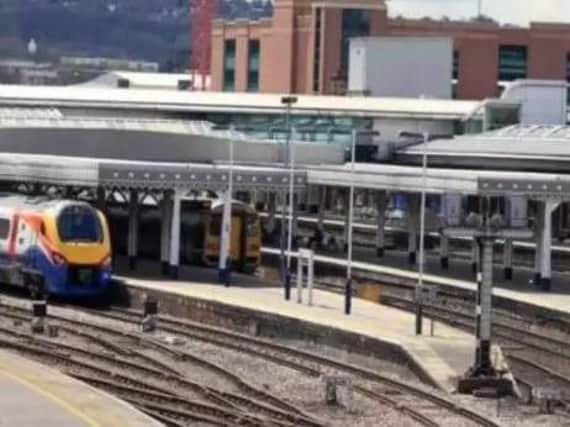Lack of funding to blame for scrapping of Sheffield's rail electrification project


In July 2017 the Secretary of State for Transport announced the cancellation of three electrification projects, including one affecting the Midland Main Line between Sheffield and Nottingham.
CRIME: Trains shot at twice in Doncaster on same dayIt followed an earlier commitment by the Department for Transport in 2012 where it identified rail electrification as a strategic priority and announced £3 billion of electrification schemes for England and Wales in the 2014-2019 rail investment period.
Advertisement
Hide AdAdvertisement
Hide AdPOLICE: 11 yellow bikes 'confiscated' in HillsboroughElectrification of the Midland Main Line to Sheffield was a Conservative Party election manifesto commitment in 2015.
Following the decision to scrap the scheme, the National Audit Office launched an investigation and the findings were published this morning.
In his cancellation announcement, the Secretary of State explained that the projects were cancelled on the basis that it was were no longer necessary to electrify every line to deliver passenger benefits.
He said that passenger journeys could be improved sooner than expected by using 'state of the art trains' but the NAO investigation claims it is too early to determine whether the Department will still be able to deliver the benefits of electrification without these electrification projects in place.
Advertisement
Hide AdAdvertisement
Hide AdThe investigation found that 'while the availability of alternative means of delivering passenger benefits was important, the major reason for cancellation was affordability'.
A spokesman said: "The Department decided to cancel projects because Network Rail could no longer deliver its 2014-19 investment programme within the available funding.
"Network Rail found that the cost to complete planned works exceeded the available funding by £2.5 billion.
"In late 2016, the Department and Network Rail found that plans to raise and retain £1.8 billion to reduce the funding shortfall, through asset sales, were unachievable. They decided to cancel projects to help address the shortfall.
Advertisement
Hide AdAdvertisement
Hide Ad"The Department estimated that cancelling these three projects would save a maximum of £105 million in 2014-19 rail investment period, but would avert £1,385 million of spending in the following 2019-24 period."
